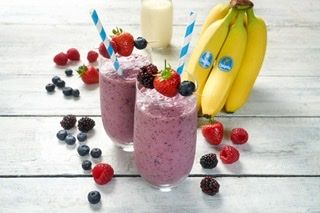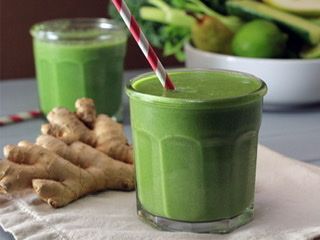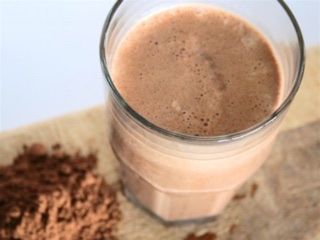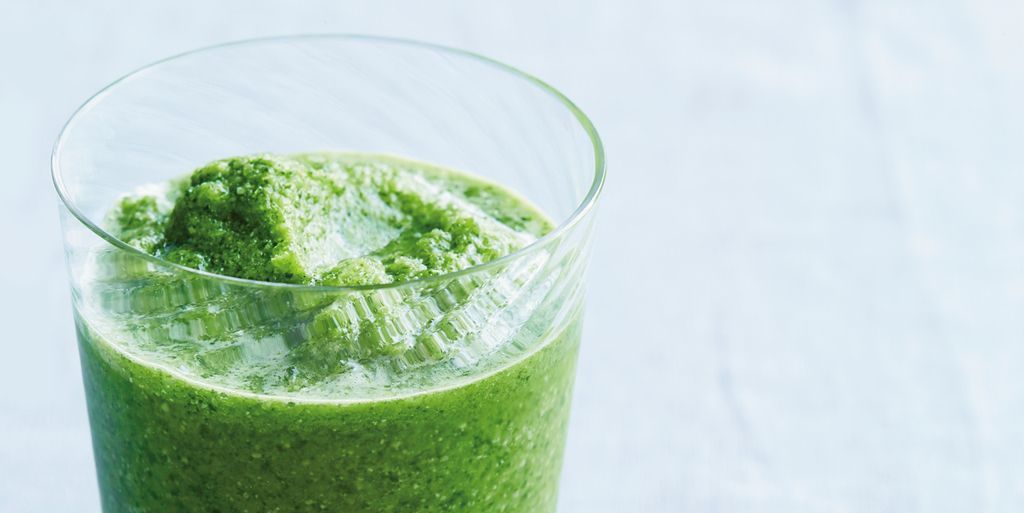Smoothies have become an on-the-go staple for health-conscious eaters, are easy to make, filled with fruits and veggies, and are ready in seconds. But not all smoothies are created equal. In fact, many store-bought smoothies are loaded with excess sugar and calories.
Is it healthy to have a smoothie for breakfast?
Smoothies can make a healthy breakfast if you have a good balance of ingredients and nutrients—including protein, carbs, and healthy fats. Smoothies that heavily rely on veggies over fruit instantly cut down on sugar and increase the fibre content. You also want to avoid adding a lot of fruit juice and sweeteners, like syrups and honey, to limit the sweet stuff. Adding yogurt and protein powder helps make smoothies more filling, so you’ll stay satisfied longer. Just be sure to choose powders that have little to no added sugar and have zero artificial ingredients.
The liquid bases you use in your smoothie also play a big role. Skip fruit juices, which are packed with sugar and lack protein and fat, and go for low-fat milk or an unsweetened, non-dairy milk alternative, like almond, coconut, or cashew. Some non-dairy milks have less protein than cow’s milk, but they offer healthy fats to keep you satiated.
If you’re looking to put your own blender to use and start making smoothies at home, you’re already one step ahead with saving yourself money and ensuring you have full control over what goes into your drink. Enjoying a smoothie every day is totally fine if you make sure it has a good balance of nutrients.
That said, dieticians say it’s actually better to chew and swallow food rather than drinking it for fullness, so it’s probably best to limit your intake to one smoothie a day and enjoy proper meals and snacks throughout the day. And if you’re aiming to make your smoothie a meal, try to include at least 25 grams of protein; if it’s a snack, go for at least 10 grams of protein.
These delicious, healthy smoothies make it easier to eat right with nutrient-rich fruit and veggies, creamy milk, protein, probiotic-rich yogurt, and other nutritious ingredients.
Just a note: Some of these recipes contain fruit juice or honey to up the sweetness, but if you’re looking to cut added sugar from your diet, you can omit those ingredients.
Berry-Banana-Oat Smoothie

Oats add body to your smoothies, plus the resistant starch this whole grain contains helps you feel fuller longer. Another bonus of resistant starch? It causes less gas than other fibres.
In a blender, combine 2 cups frozen strawberries, 1 cup vanilla low-fat yogurt, 1 banana, sliced, 1/2 cup rolled oats, 1/2 cup orange juice, and 1 Tbsp honey. Blend until the mixture is smooth, serves 4.
Nutrition (per serving): 171 calories, 2 g fat (1 g sat fat), 5 g protein, 36 g carbs (3.5 g fiber), 23 g sugars (4.5 g added sugar)
Green Ginger Smoothie

Baby spinach and Granny Smith apples combine to create the delicious green colour of this smoothie. Hemp seeds add a dose of plant protein and healthy fats.
Combine 2 cups packed baby spinach, 1 chopped Granny Smith apple, 3/4 cup coconut water, 1/4 cup lemon juice, 2 Tbsp. hemp seeds, 3 tsp. minced ginger, 1 tsp. raw honey, 1 ½ cup ice cubes. Blend until smooth, serves 2.
Nutrition (per serving): 153 calories, 4 g fat (1 g sat fat), 27 g carbs (4 g fiber), 17 g sugars
Mocha Protein Shake

This breakfast tastes like a milkshake, with a secret ingredient of Walnuts, which are high in protein and omega-3 fatty acids—healthy fats known to help fight inflammation and protect your heart. A shot of black coffee makes this the perfect morning shake.
In a blender, add 1 1/2 cup black coffee (made in advance and cooled), 1 large frozen banana (cut into chunks), 1 cup ice cubes, 1/4 cup walnuts, 1 heaping Tbsp. unsweetened cocoa powder, 6 Tbsp. chocolate protein powder. Blend until smooth, serves 2.
Nutrition (per serving): 264 calories, 11 g fat, 24 g protein, 22 g carbs (4 g fiber)






